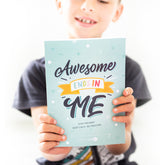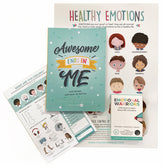Why You Should Thank Your Children
When you ask your child to do something, do you thank them when they do it? Do you openly express your gratitude towards your child?
If we are to teach them to be happy we must express thanks towards them and the wonderful things they do. Children are always watching and learning from us. We are their first role models. If they see us expressing our thanks, they will learn to do the same.
Even getting a hug from your child can be a moment where you could offer a big ‘THANK YOU’. There isn’t much more a child can do than open up their emotional side and approach for a hug, so a simple thank you can confirm to them that you are truly grateful to them for their love.
Now, I don’t mean to suggest that you say thank you all day long for every single thing they say and do. But start by noticing if you say it at all to your children. Then aim to include it a few times a day and see the reaction your gratitude gets you. I have a sneaky suspicion that our children will want more of it from us, and so will seek out ways to get more thanks.
Sometimes I say thank you to my children for choosing me as their Mum. They just love this!
I say, ‘I can’t believe how lucky I am that you picked me from all the Mummies in the world to be your Mum, thank you so much!’ \
The smiles spread from ear to ear and they often respond back with a simple ‘you are welcome’ followed by ‘you are the best Mum in the world,’ which fills me with love. Everyone is happy and feels loved!
In 2006, psychologists Nansook Park and Christopher Peterson conducted an analysis of parents’ descriptions of their children’s strengths — and found that gratitude had the strongest relationship to life satisfaction.
Evidence from The Greater Good study from Berkeley University suggests that grateful young adolescents (ages 11-13), compared to their less grateful counterparts, are happier and more optimistic, have better social support, are more satisfied with their school, family, community, friends, and themselves, and give more emotional support to others.
They also found that grateful teens (ages 14-19) are more satisfied with their lives, use their strengths to better their community, are more engaged in their schoolwork and hobbies, have higher grades, and are less envious, depressed, and materialistic.
We are super passionate here at Me Inc about gratitude and how that translates into happiness and I know that THE SINGLE MOST IMPORTANT THING I want for my kids, is that they are HAPPY.
Here are three ways you can start fostering more gratitude in your kids:
- Remember to say ‘Thank You’ to your children. Role modelling is a great way to teach gratitude and appreciation;
- Practising gratitude daily will form a great habit in life for kids. You can either get them a gratitude journal or simply start by sitting around the dinner table and asking what they are grateful for today. Honestly, kids really embrace this quickly;
- Remember to be mindful when with our children. Teach them about savouring positive moments, simply by reminding them how special the moment is that you are enjoying together.
Learn the art of appreciation through our gratitude journals:
ADULT JOURNALS | TEEN JOURNALS | KIDS JOURNALS
Photo by Sai De Silva on Unsplash














